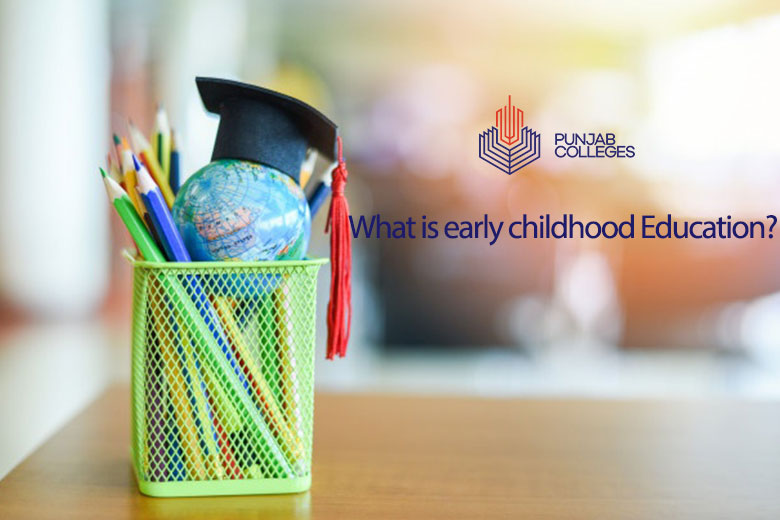
Early childhood education refers to educational programs and practices focused on children between the ages of birth and about eight. Early childhood education programs are created to assist and enhance this stage’s rapid development in cognitive, emotional, and physical aspects.
Early childhood education programs come in a variety of shapes and sizes, including preschools, daycare facilities, and home-based childcare. They can also include a range of educational activities like play-based learning, language and literacy development, as well as fundamental science and math education.
Purpose of Early Childhood Education
The purpose of early childhood education is to equip children with a solid foundation for later development and success in both school and life.
The goal of early childhood education is not just to give your child a head start on learning key life skills, but also to create and develop a lifetime love of learning in your child. Furthermore, one of the primary goals of early education is a smooth transition into a conventional classroom setting.
The goals also include:
- Develop in Children the Positive Self-Esteem
- Instill Teamwork in Children
- Teach Basic Mathematics Skills
Importance of Early Childhood Education
Early childhood education is critical because it lays the groundwork for young children to excel in life. Early childhood education programs are intended to assist and enhance this development, which occurs between the ages of birth and eight, during which time it is crucial for cognitive, emotional, and physical development.
For a child’s entire growth and future success, early childhood education is essential. Early childhood education has several important advantages, which include:
1. Cognitive Development
High-quality early childhood education programmes can aid in children’s cognitive development by incorporating activities that advance language, reading, and numeracy abilities. Children learn to think critically, solve issues, and comprehend their environment through play-based education and interactive activities.
2. Early Language and Literacy Development
It has been demonstrated that young children who get an education have an edge in these areas as well as in general intellectual growth.
3. Social and Emotional Development
Early childhood education can assist children in gaining critical social and emotional abilities like self-control, cooperation, and communication. Children develop their ability to share, take turns, and form friendships through participatory games and activities. They also gain the capacity for emotional expression and a sense of self-worth.
4. Lessened Educational Differences
By giving all children a fair playing field and a solid foundation for future learning, high-quality early childhood education can help lessen educational disparities among children from various socioeconomic backgrounds.
5. School Preparation
Early childhood education may help children prepare for school by teaching them the fundamental abilities they require to succeed in the classroom, such as literacy and mathematics. They will perform better in class and obtain better academic results as a result of this.
6. Support for Families
Early childhood education can help families by offering parents the chance to work or continue their own education and by giving children a secure and encouraging environment.
What Do Children Learn in Early Childhood Education?
The focus of early education is on providing children with a solid foundation of knowledge and skills that they can build upon as they grow and develop. Some of the things that children learn in early childhood education include:
1. Language Skills
Children acquire language abilities such as speaking, listening, reading, and writing, as well as language understanding and use. They pick up the alphabet, the fundamentals of reading and writing, and interpersonal communication skills.
2. Numeracy Skills
Children acquire essential numeracy skills like counting, number recognition, and basic arithmetic. Additionally, they get knowledge of and practice mathematical knowledge and terminology.
3. Scientific and Technological Knowledge
Children learn about physical phenomena, the natural world, and basic scientific ideas. Additionally, they learn about technology and proper tool and equipment handling.
4. Social and Emotional Skills
In addition to learning how to control their emotions and form wholesome relationships, children also learn to interact and communicate with others. They gain knowledge of responsibility, collaboration, and teamwork.
5. Physical Skills and Health
Children receive instruction on healthy living and physical growth. They practice body movement and engage in exercises that encourage physical health.
6. Creative Expression and The Arts
Through the use of painting, music, and other kinds of creative expression, children learn how to express themselves.
7. Global and Cultural Understanding
In addition to learning about various cultures, traditions, and customs, children also learn about the globe and the people that live in it.
It is important to note that in early childhood education, the learning is frequently play-based, where children learn through interactive activities, games, songs, tales, and other materials that are catered to their developmental stage and interests.
The majority of the curriculum is also created with developmentally appropriate practices in mind, which focuses on appreciating the child’s developmental stage and creating learning opportunities that are specifically designed for it.


